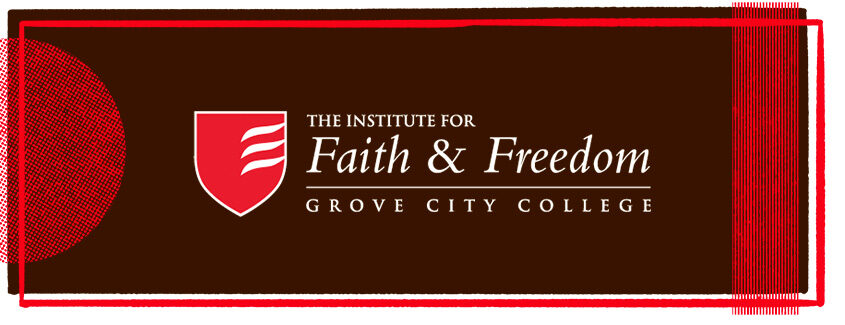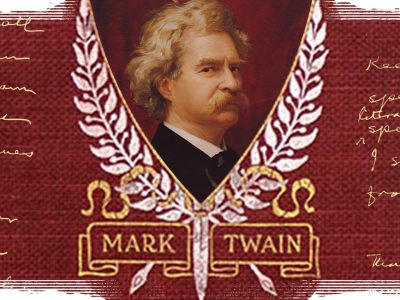
Editor’s Note: The “Author Q&A” is an e-publication from the Institute for Faith & Freedom at Grove City College. Each issue will present an interview with an author of an intriguing new book that we hope will prove illuminating to readers everywhere. In this latest edition, we sit down with Dr. Gary Scott Smith to discuss his new book, “Strength for the Fight: The Life and Faith of Jackie Robinson” which is now available at Amazon.com.
IFF: Your book “Strength for the Fight: The Life and Faith of Jackie Robinson” has just been released. Why did you write this book?
Smith: The story of Jackie Robinson’s breaking the color barrier in Major League Baseball (MLB) is well known, but the role his faith played in helping him deal with the immense challenges he confronted in doing so is far less familiar. This year marks the 75th anniversary of Robinson’s first game (April 15) and the 50th anniversary of his death (October 24). It is, therefore, a propitious time to reexamine how Robinson’s faith helped give him the motivation, courage, and perseverance to cope with the powerful prejudice and relentless ridicule he faced as a racial pioneer. Bearing the weight of his race on his shoulders, Robinson confronted substantial animosity, extensive verbal abuse, and numerous threats to his life as he demolished MLB’s color line.
Robinson’s gripping story has been told many times. He himself wrote five books, and many biographers have described his trials, tribulations, and triumphs. Yet in popular American culture, Robinson is often portrayed as more a monument than a man, more a mythical figure than a human being. To grasp his significance, we must understand the toxic, systemic racism against which Robinson battled his entire life. To him, “one irreducible truth” transcended his remarkable Hall of Fame baseball career, and makes his story much more than a tale of athletic prowess. As he declared in his 1972 autobiography, “I was a black man in a white world. I never had it made.”
IFF: Why was Robinson’s integration of MLB so important?
Smith: Robinson integrated baseball before Martin Luther King, Jr. became a civil rights leader, the Supreme Court issued Brown v. Board of Education, Rosa Parks initiated the Montgomery bus boycott, or Thurgood Marshall became a Supreme Court Justice. His actions helped pave the way for these other developments and the opening of opportunities for people of color in other areas of American life. Following his lead, numerous African Americans soon excelled in MLB, and by the late 1960s, they starred in the National Football League and dominated the National Basketball Association. black athletes have inspired millions of minorities to battle for social equality and pursue their dreams in many areas of society, and sports have helped to increase racial understanding.
King called Robinson the true founder of the civil rights movement, while Barack Obama insisted that “there is a straight line from what Jackie did to me being elected the first African-American president.” The United States had numerous black heroes before Robinson, but his audacity and accomplishments dramatized the kind of courage African Americans needed to secure their rights. Inspired by his Christian faith, Robinson helped smash racial barriers not only on the baseball diamond but also in politics, business, religion, and society.
IFF: Tell us about Robinson’s faith.
Smith: Robinson was strongly influenced by three Methodists—his devout mother Mallie, pastor Karl Downs, and Brooklyn Dodgers general manager Branch Rickey. Mallie nurtured Jackie spiritually and required him as a child to attend Scott Methodist Church in Pasadena, California. Downs persuaded Robinson to leave the Pepper Street Gang to which he belonged as a teenager, helped him develop a personal relationship with God, and persuaded him to participate in a variety of church activities, including teaching Sunday school. Rickey was a surrogate father and mentor who signed Robinson to play with the Dodgers. All three individuals helped convince Robinson that God had endowed him with the athletic ability to demonstrate that African Americans could excel in baseball. Robinson frequently testified that he relied on prayer to guide him and sustain him during his trials.
Robinson talked openly about his faith in three of his autobiographies and more fully in an unpublished manuscript titled “My Greatest Day.” As he stated in 1952, “my faith in God . . . sustained me in my fight.” Robinson’s faith was deep and meaningful and a powerful force in his life. It played an integral role in shaping his worldview and convictions, which, in turn, undergirded his amazing transformative work as a black athlete and a civil rights activist.
IFF: What other individuals or groups influenced Robinson’s spiritual development and religious views?
Smith: After retiring from MLB, Robinson preached numerous sermons, gave dozens of speeches, and wrote hundreds of opinion pieces that? express convictions espoused by many black Christians, Methodists, and proponents of the Social Gospel during the first half of the twentieth century. He attacked the same social ills they did while seeking to enhance the dignity and opportunities of people of color, who remained second-class citizens. Convictions derived from these groups inspired Robinson throughout his adult life and helped empower him to integrate MLB and promote racial equality.
IFF: What did Robinson do after his baseball career ended?
Smith: Arguably, no MLB player contributed more to American society after his playing days ended than Jackie Robinson. As noted, he gave speeches throughout the nation, and hundreds of his newspaper columns denounced discrimination. He raised money for civil rights causes, created businesses to employ blacks, urged presidents to make civil rights a higher priority, and campaigned for several candidates, especially New York governor and Republican presidential candidate Nelson Rockefeller. He pressured MLB to hire African-American executives, managers, and coaches. No other athlete in any sport did more than Robinson to articulate and advance the cause of black civil rights both during and after his playing career.
IFF: This sounds like a fascinating book that can help shed light on racial issues in contemporary America.




